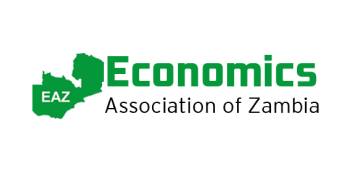FSD Africa, CIFF and UNECA Launch Debt Programme to Link Fiscal Stability with Climate Action
Africa’s debt crisis is increasingly clashing with its climate ambitions, with governments spending more on debt servicing than on health, education, or climate resilience. According to the African Development Bank, over 20 countries are either in debt distress or at high risk, a trend worsened by rising global interest rates, currency depreciation, and volatile capital flows.
Meanwhile, the World Bank estimates that African countries require more than $280 billion annually until 2030 for climate adaptation and mitigation, a sum that is becoming harder to mobilise as fiscal pressures grow.
In response, a new initiative has been launched to align sovereign debt management with sustainability goals, aiming to unlock fiscal stability while increasing climate finance. On 16 September 2025, FSD Africa, in partnership with the UN Economic Commission for Africa (UNECA) and supported by the Children’s Investment Fund Foundation (CIFF), announced the Sovereign Debt Advisory and DMO Institutional Support Programme.
The facility will provide technical assistance and funded support to African Debt Management Offices and Ministries of Finance, helping them integrate sustainability into debt strategies. The programme is expected to reduce refinancing risk, extend debt maturities, and free up capital for development priorities, particularly climate-related investments.
The announcement followed the Africa Climate Summit in Addis Ababa, where leaders stressed Africa-led solutions, domestic capital mobilisation, and resilient local-currency finance. FSD Africa’s 2025–2030 strategy, aiming to catalyse £10 billion of private capital, 84 percent in local currency, for climate-positive transformation, underpins the programme.
Mark Napier, CEO of FSD Africa, emphasised the strategic importance of sustainable finance: “Sustainable finance is not a label change, it’s a fiscal strategy.” By embedding sustainability into debt management, governments can attract better financing terms while channeling resources into long-term priorities such as energy transition, resilient infrastructure, and inclusive growth.
UNECA has long advocated for integrating fiscal stability with climate action. Dr Stephen Karingi, Director of UNECA’s Macroeconomics, Finance and Governance Division, said: “Africa’s debt challenges cannot be separated from its climate ambitions. Fiscal stability and climate action must go hand in hand.” This aligns with UNECA’s 2022 Economic Report on Africa, which highlighted the need for innovative financing mechanisms that preserve fiscal space while enhancing climate resilience.
Kate Hampton, CEO of CIFF, framed the initiative in terms of global partnerships. She noted that international support can help African governments borrow on better terms, lower cost, longer tenors, and greater predictability, by promoting transparency, sensible standards, and risk-sharing. The approach also aligns with the Bridgetown Initiative, which calls for multilateral reform to provide concessional finance and debt restructuring for climate-vulnerable economies.
The programme will provide practical support, including sustainability-integrated debt sustainability analyses, assistance in preparing bankable project pipelines, and guidance on engaging with credit rating agencies and investors. It will also build institutional capacity and support the development of local capital markets, crucial for mitigating foreign exchange risks that exacerbate fiscal stress.
Development finance institutions, donors, and private investors are invited to co-create a multi-country guarantee and risk-sharing envelope, with an initial target of $10 billion. This echoes recommendations from COP28 and previous Africa Climate Summits calling for blended finance and debt-for-climate swaps to accelerate climate funding.
Similar instruments have been tested elsewhere, such as Ecuador’s $1.6 billion Galápagos marine bond and debt-for-nature swaps in Belize, Barbados, and Sri Lanka, but Africa emphasises local-currency mobilisation and tailored approaches across 54 countries.
Despite its promise, the initiative faces challenges. Skepticism remains over whether sustainability-linked instruments can truly transform fiscal dynamics or risk being mere rebranding exercises. The IMF has cautioned that without transparency, strong governance, and independent monitoring, such tools could fall into “greenwashing.” CIFF’s focus on investor confidence and transparency directly addresses this concern.
The rollout of the FSD Africa Sovereign Debt Programme will be closely monitored. If successful, it could serve as a model for African countries to balance fiscal discipline with climate ambition, preserving fiscal space for social spending, financing resilient infrastructure, and attracting long-term investment, while positioning Africa as a leader in innovative debt solutions.



